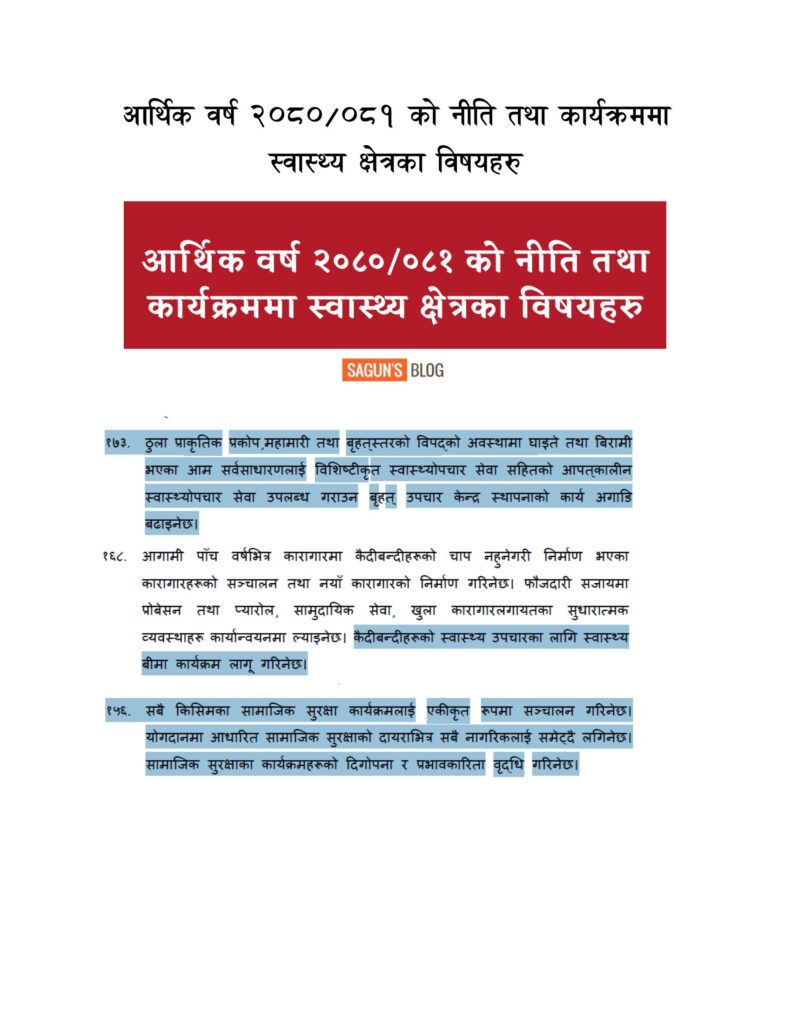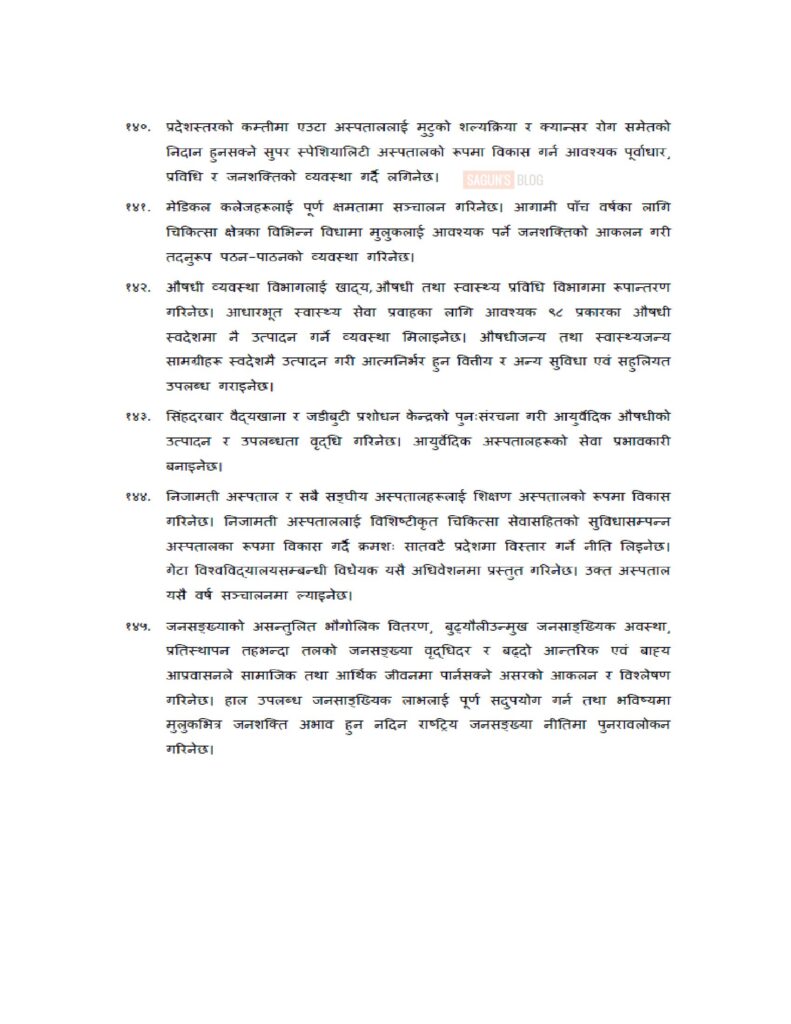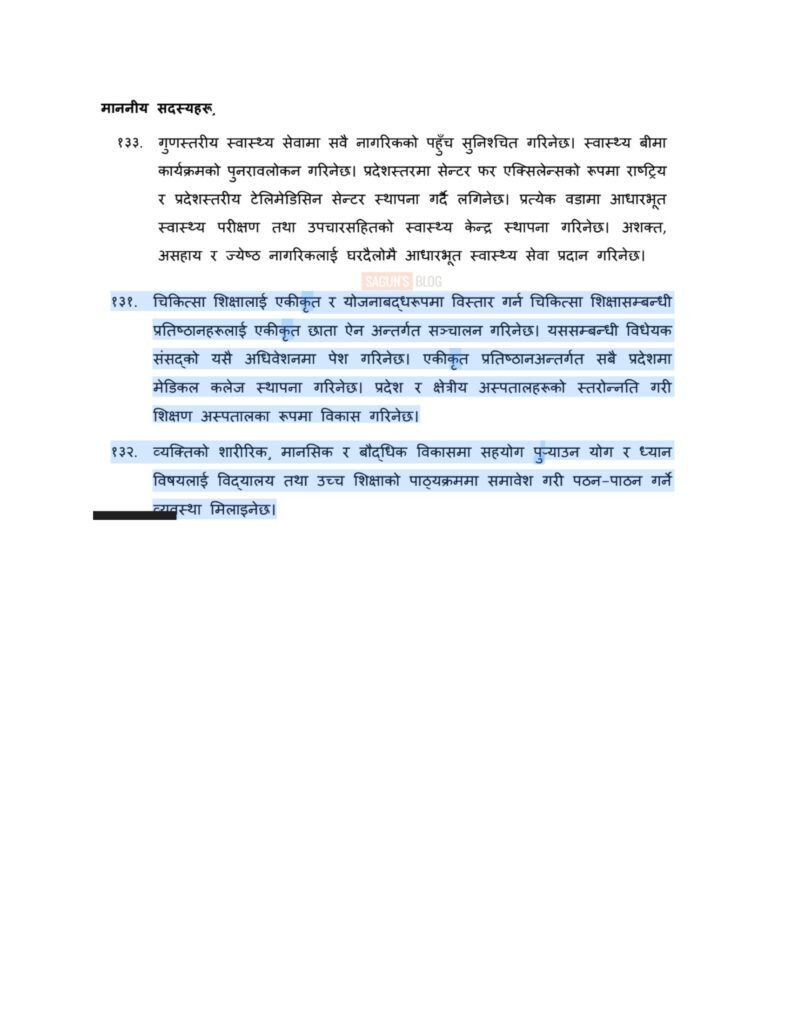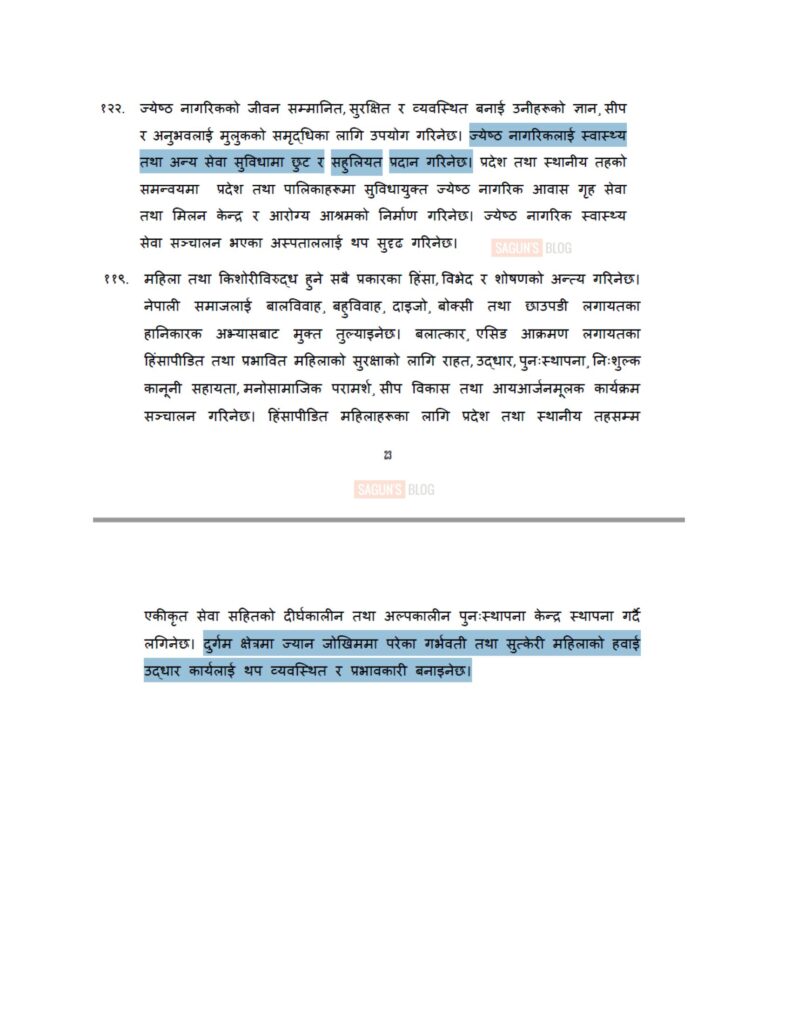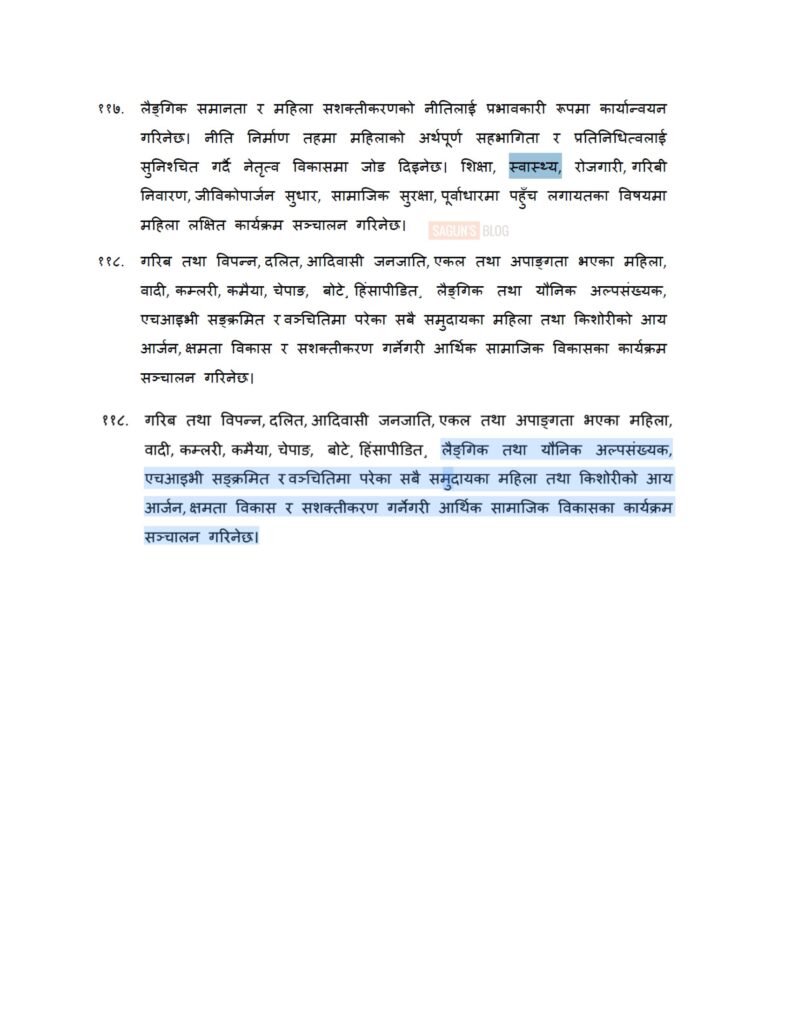The Government of Nepal has presented the policies and programmes for the upcoming fiscal year 2080/081 (2023-24) at the joint meeting of the House of Representatives and National Assembly. Here are the major policies and programmes related to health.
- Citizens’ access to communication and information technology will be increased. Use of information technology will be expanded in education, health, development activities, and service delivery. Research, development and extension of information technology system will be carried out for knowledge based economy and good governance.
- A National Integrated Emergency Service System will be established and brought into operation with the integrated mobilization of ambulances, fire engines, security personnel and health workers for the immediate rescue and treatment of people severely injured by fire, accidents and criminal activities.
- Gender equality and women empowerment policy will be implemented effectively. Leadership development of women will be emphasized while ensuring their meaningful participation and representation at policy making level. Women-focused programs on education, health, employment, poverty alleviation, livelihood improvement, social security and access to infrastructure will be conducted.
- The lives of senior citizens will be made dignified, secure and orderly. Their knowledge, skills and experience will be utilized for the prosperity of the nation. They will be provided discounts and concessions on health related and other services. Well-equipped Senior Citizen Homes, Services and Friendship Centers, and Health Centers will be constructed in various provinces and municipalities in coordination of the provincial and local levels. The hospitals providing health services to senior citizens will be further strengthened.
- Access to quality health services for all citizens will be ensured. The health insurance program will be reviewed. National and state-level telemedicine centers will continue to be established as centers for excellence at provincial level. A health center with basic health examination and treatment will be established in each ward. Basic health services will be provided to disabled, helpless and senior citizens at their doorstep.
- To provide basic health services, arrangements will be made to provide one MDGP, one Gynecologist and Obstetrician, at least three medical officers and necessary nurses, technical manpower including lab, equipment and material required for laboratory, diagnostic equipment including X-ray, ultrasound, echo ECG, ambulance with oxygen facility in basic hospitals. Doctors working in basic hospitals will be given the opportunity to study in higher medical education.
- Arrangements will be made for mandatory operation of OPD services from 8.00 am to 8.00 pm while ensuring at least one hospital, one doctor in all community hospitals.
- Campaign against communicable diseases and special programs for treatment of non-communicable diseases will be operated. In order to prevent untimely deaths due to lack of timely treatment in remote areas, one air ambulance service equal to two districts will be operated regularly in extremely remote districts, hilly areas of far-western region and Karnali province. A national ambulance service with a centralized database will be established.
- Community Health institutions will be evaluated on the basis of manpower, equipment, medicine, quality of service delivery, time period, management and cleanliness.
- A special program related to maternal and newborn care and treatment services will be arranged at the local level where newborn and maternal mortality rates are high.
- Arrangements will be made for the diagnosis and treatment of autism. As a special program, free early detection and early treatment of cervical cancer and breast cancer in women will be extended across the country.
- Infertility and childlessness treatment services will be extended to federal hospitals in all seven provinces. Access to reproductive health services will be ensured for all. The maternity centers in all the wards of the municipality will be upgraded.
- Necessary infrastructure, technology and manpower will be arranged to develop at least one provincial hospital into a super specialty hospital that can diagnose cancer and carry out heart surgery.
- Medical colleges will be operated at full capacity. Assessing the manpower needed by the country in various categories of the medical field, arrangements will be made for relevant courses for the next five years.
- The Department of Drug Administration will be converted into the Department of Food, Medicines and Health Technology. Arrangements will be made to produce 98 types of medicines within the country for basic health care services. Financial and other facilities and concessions will be provided for producing medicinal and health materials in the country to become self-reliant.
- The production and availability of Ayurvedic medicines will be increased by restructuring Singhadurbar Vaidyakhana and Herbal Processing Centers. The services of Ayurvedic hospitals will be made effective.
- Civil hospital and all federal hospitals will be developed as teaching hospitals. Policy will be pursued for gradually expanding civil hospitals to all seven provinces by developing them as well-equipped hospitals with specialized medical services. The Bill on Geta University will be presented in this session. The hospital will be put into operation this year.
- The impact on social and economic life caused by the trend of unbalanced geographic distribution of the population, aging demographic situation, population growth rate below the replacement level, and increasing internal and external migration will be assessed and analyzed. The National Population Policy will be reviewed in order to make full use of the currently available demographic benefits without causing a shortage of manpower in the country in the future.
- A health insurance program will be implemented for the treatment of prisoners.
- Necessary process will be initiated for the establishment of an Emergency Medical Treatment Center with a view to providing emergency and specialized health care services to the injured and sick general public during major natural disasters, pandemics and large-scale disasters.
